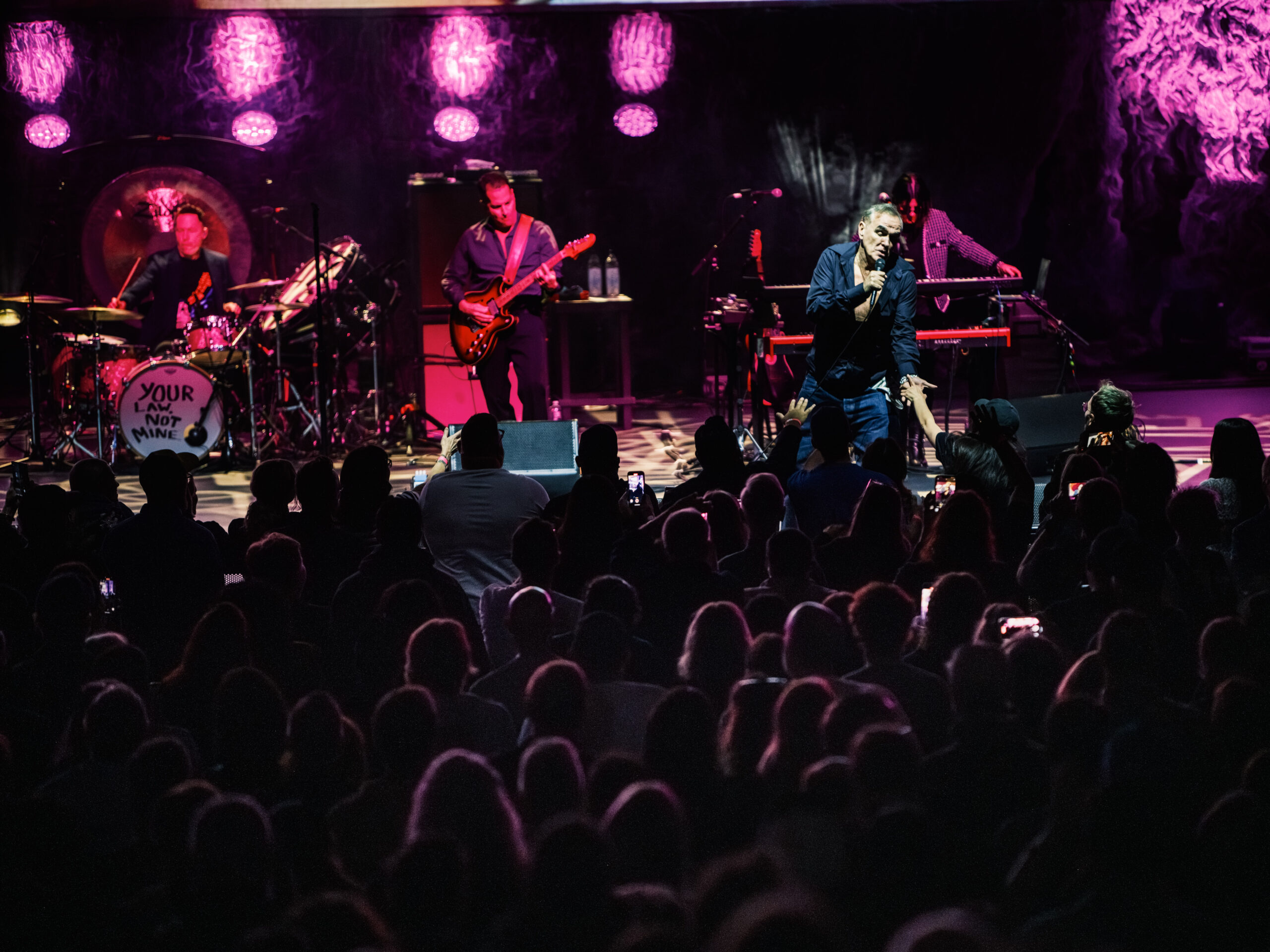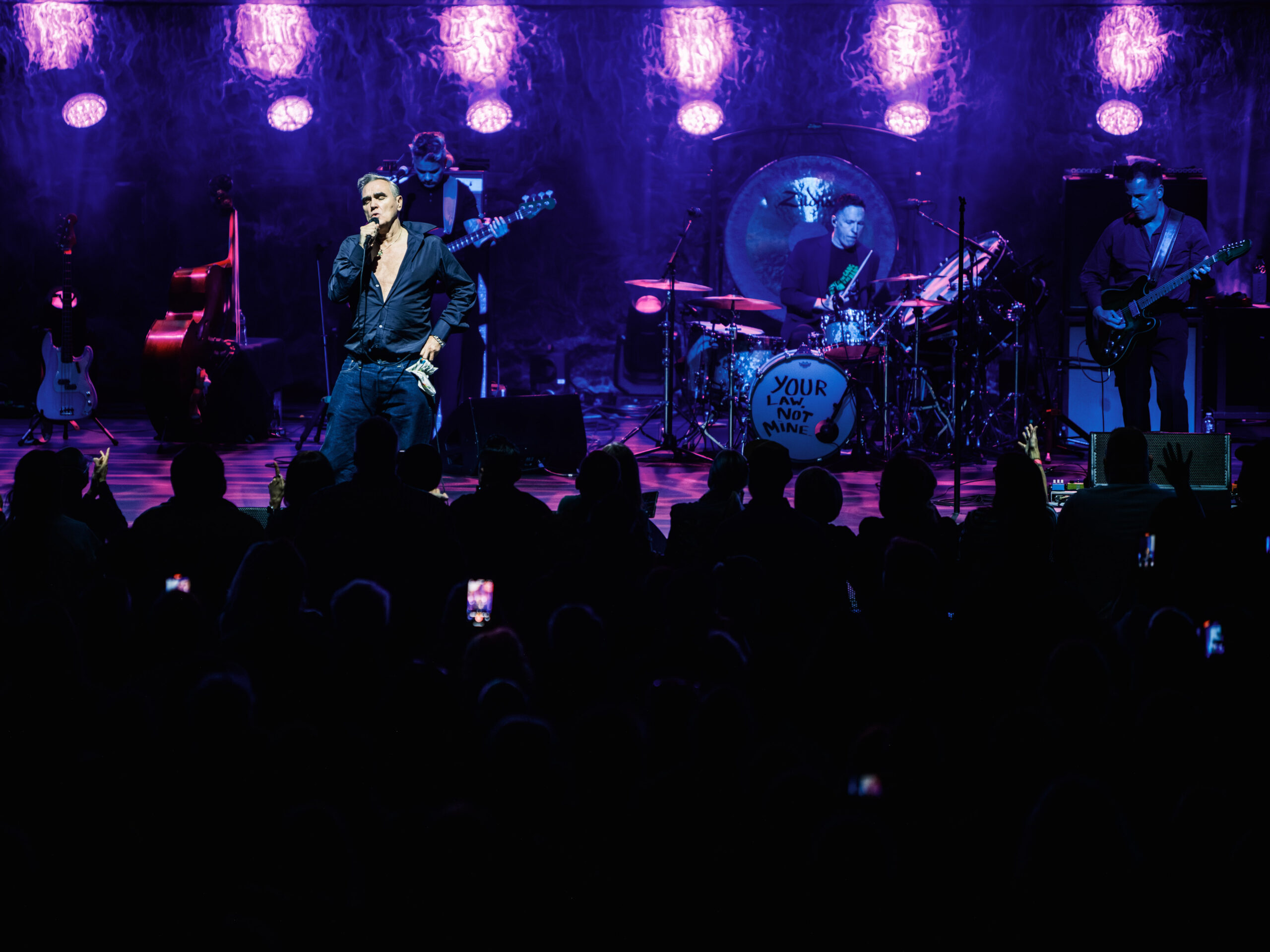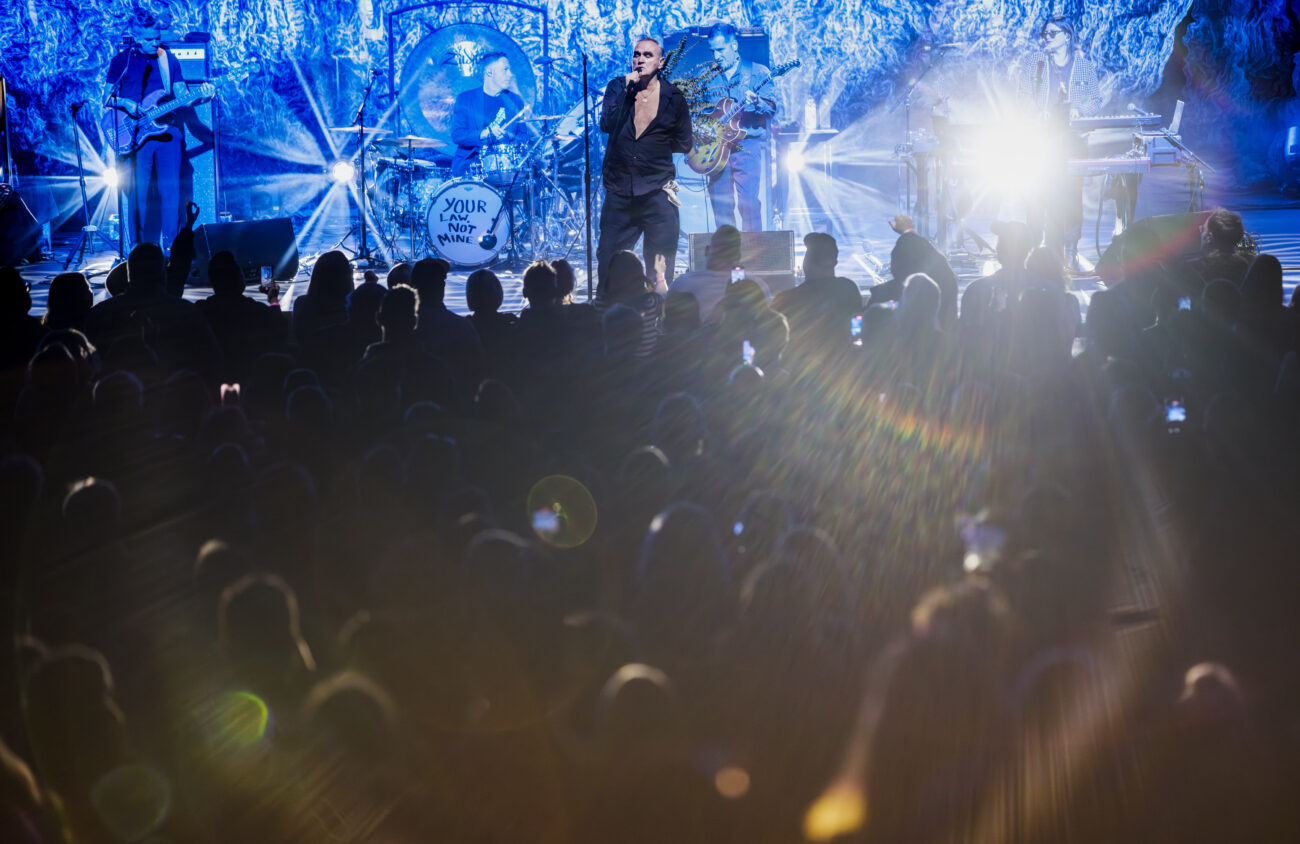Enlarge

Photo by Todd Cooper
Enlarge

Photo by Todd Cooper
Photos by Todd Cooper.
Words by Will Kennedy.
I entered Morrissey’s Oct. 9 Hult Center show feeling tender. Morrissey, or Moz, as fans call him, is my absolute favorite vocalist and on-stage rock performer from the time I was a teenager. But lately, there’s been a lot of noise about the enigmatic former The Smiths lead singer, and unfortunately, not much of it is about music but about his controversial politics instead.
Moreover, at 49 years old, and a dad attending the show with my wife and teenage daughter— and Morrissey at 66, without a new album for several years — I wondered where we were in our relationship. Would it be the same? I’ve lost track, but the Hult show was something like the 12th time I’ve seen him live since 1992.
But those concerns fell to the wayside once I stepped inside the Hult. Not completely sold out, the venue was full and vibrating with a mix of all ages: grey-haired hipsters, along with young dreamers in Moz and Smiths T-shirts just beginning their journey with the brooding British baritone.
Moz’s setlist was crowd-pleasing and Smiths-heavy, including “There Is a Light That Never Goes Out” and the Smiths’ anthem of awkward teenage angst, “Half a Person.”
He even brought out some greenery as a stage prop at the start of the show, much like a young Moz did in the early days of The Smiths. Peppered throughout, some of his most well-known solo songs, and his voice carried it all, backed by a fresh and muscular young band.
(Throughout his career, Morrissey’s current band is “never like it used to be,” but beginning with The Smiths in the 1980s, he’s had a string of tough acts to follow.)
As followers are aware, a theme in Moz’s work is a fascination with mid-century pop culture, music and iconography, and he opened the show with a video montage, almost like a DJ set from the singer, and continued to perform against melodramatic still photo backdrops of artists, writers, and singers, many black and white. The Hult served as a grand backdrop for the singer’s vision.
As the concert ebbed and flowed, the crowd remained warm and receptive, whether it was the first time or the umpteenth time experiencing the singular star power of the singer, mixing punk rock energy with an almost pre-rock crooner’s charisma.
“I’m so sorry,” Moz sings on his 1988 solo hit, “Suedehead,” in the setlist that night. And just when I thought, for a mix of reasons, Moz and I may have finally grown apart, I left the Hult Center concert feeling — once again, and for reasons I can’t quite explain — like I’d forgiven him.
